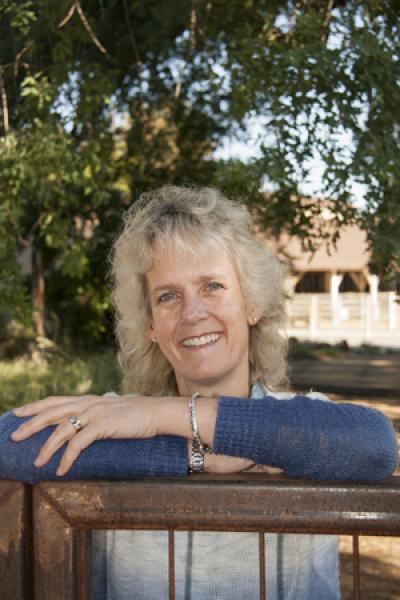
A nationally renowned animal scientist will speak about genetically modified animals at the next UNL Heuermann Lecture on Jan. 13.
Alison Van Eenennaam, a Cooperative Extension specialist in animal genomics and biotechnology in the Department of Animal Science at University of California, Davis, will speak at 7 p.m. at the Nebraska Innovation Campus conference center, 2021 Transformation Dr.
The title of Van Eenennaam's talk is "Genetically Modified Animals: The Facts, the Fear Mongering and the Future."
The first genetically engineered animals were produced almost 30 years ago, although to date no genetically engineered food animal has come to market, Van Eenennaam said. A comprehensive regulatory evaluation is required for such animals, triggered by the use of recombinant DNA technology in their development.
All required regulatory studies for the fast-growing "AquAdvantage" Atlantic salmon, the first food animal to undergo regulatory review, were completed in 2009. However, the application has been lingering in regulatory limbo for more than four years awaiting a decision by the FDA.
"Part of this delay has been occasioned by political interference from both activists and competing fishing industries, sending a message that the science-based regulatory oversight as embodied in the FDA review process is subject to political intervention," Van Eenennaam said. "This regulatory roadblock has had a chilling effect on investment in the development of genetically engineered animals in the US, and the technology has started to move to other countries with a more favorable policy environment.
Developments in the science of genetic modification are enabling increasingly precise gene modifications, enabling many potential beneficial applications of this technology in the genetic improvement of food animals. Refocusing the regulatory review of genetically modified animals to a technology-agnostic, science-based evaluation of any novel attributes of the phenotype will be a crucial step in allowing the use of these advanced breeding technologies in U.S. animal agriculture, Van Eenennaam said.
Van Eenennaam received a bachelor of agricultural science degree from the University of Melbourne in Australia, and both a master's in animal science, and a PhD in genetics from UC Davis. The mission of her extension program is "to provide research and education on the use of animal genomics and biotechnology in livestock production systems."
Van Eenennaam particularly works with the beef cattle industry and has developed a variety of extension programming for producers on topics ranging from marker-assisted and whole-genome enabled selection. She is currently working on several active USDA NIFA beef cattle genomics grants.
Her outreach program focuses on the development of science-based educational materials including genetic engineering and cloning, and she has created several videos for YouTube including a 30-minute documentary titled "Animal Biotechnology", and the American Society of Animal Science award winning video entitled "Were Those the Days, My Friend?"
Van Eenennaam also has given more than 250 invited presentations to audiences in 17 states and seven countries, has appeared on national media including the Dr. Oz Show and Animal Planet, and was the recipient of the 2010 "National Award for Excellence in Extension" from the American Association of Public and Land-Grant Universities; the 2014 American Society of Animal Science National Extension Award; and the 2014 Borlaug CAST Communication Award.
Heuermann Lectures in IANR are made possible through a gift from B. Keith and Norma Heuermann of Phillips, long-time university supporters with a strong commitment to Nebraska's production agriculture, natural resources, rural areas and people.
The lectures focus on providing and sustaining enough food, natural resources and renewable energy for the world's people, and on securing the sustainability of rural communities where the vital work of producing food and renewable energy occurs. Lectures stream live at http://heuermannlectures.unl.edu and are archived at that site soon after the lecture. They're also seen on NET2 World at a date following the lecture.